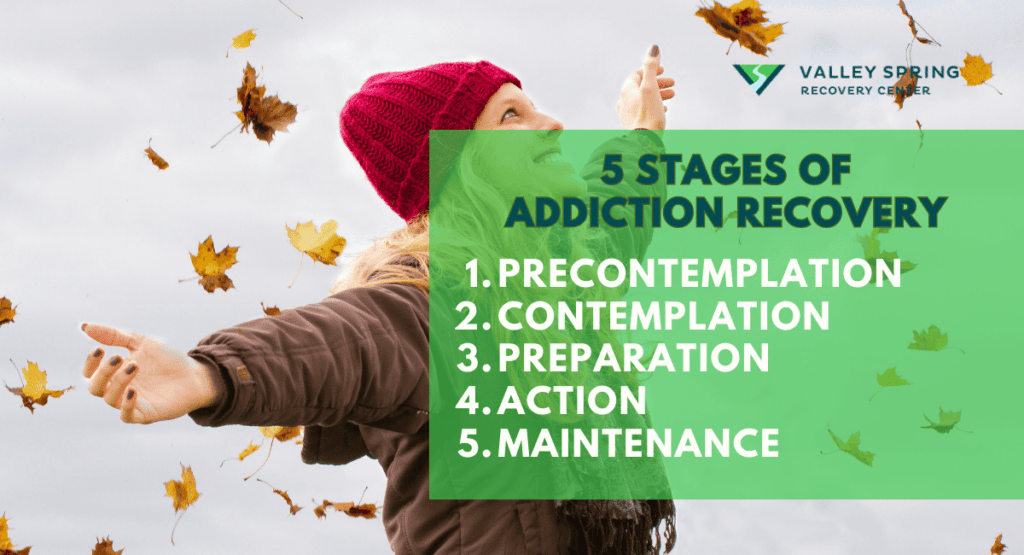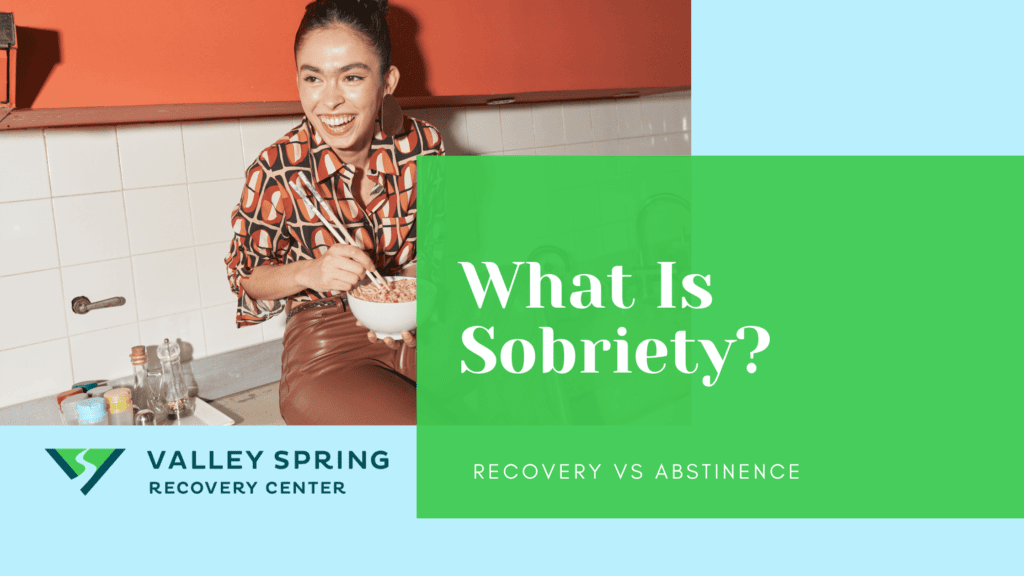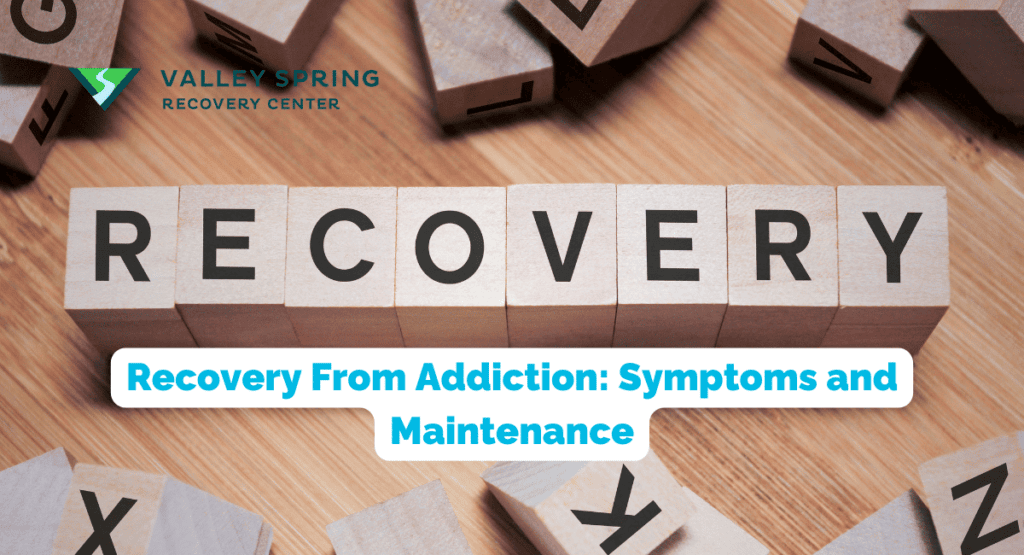Addiction is a chronic and relapsing disorder characterized by compulsive substance use and behavior despite the negative consequences it causes. Life after addiction is possible though with the right support system. Drug abusers can be actively using, and actively engaging in ongoing recovery. It’s difficult work to get sober in the first place, which makes it easier to stay sober than to get sober again after a relapse. Recovering addicts who stay busy, and active and focus on strong relapse prevention techniques can greatly improve their quality of life and gain long-lasting sobriety.
Staying sober after a battle with addiction is a commendable achievement, yet it often represents only the beginning of a lifelong journey toward maintaining that sobriety. The road to sustained recovery can be fraught with challenges, temptations, and unexpected triggers. Equipping oneself with practical strategies to navigate these obstacles is crucial. The importance of having a well-thought-out plan, coupled with a supportive network, cannot be overstated. Actionable tips for staying sober offer insights that are not only beneficial for those in recovery but also for friends and family members who play a vital role in their loved ones’ continued success. Whether you’re seeking to strengthen your own sobriety or supporting someone else’s journey, these insights can empower and enlighten you.
Key Takeaways
- Understanding Sobriety: Sobriety involves more than merely abstaining from addictive substances; it requires a commitment to personal growth and a positive lifestyle. The process may vary, but typically includes professional support, self-awareness, and determination.
- Challenges in Getting Sober: Addiction can be a complex and multifaceted issue, involving both physiological and psychological aspects. The journey to sobriety may be hindered by withdrawal symptoms, mental health struggles, or social pressures.
- Tips for Staying Sober:
- Build a support network of family, friends, and professionals.
- Embrace new hobbies and interests.
- Create a structured daily routine to avoid triggers.
- Focus on overall wellness, both mental and physical.
- Seeking Help if Struggling with Sobriety: If finding sobriety seems impossible, seeking professional help is vital. This can include therapy, medical intervention, or entering a rehabilitation program. Remember, asking for help is a sign of strength, not weakness.
What Is Sobriety?
Sobriety refers to the state of not being under the influence of alcohol or drugs. It’s a clear and conscious condition where an individual does not consume or is not affected by any intoxicating substances. Sobriety is often seen as a daily choice, a continuous commitment to avoiding the substances that once controlled one’s life.
When Should You Try and Get Sober?
Recognizing the need for sobriety typically comes when an individual or those around them identify a pattern of substance abuse that is negatively impacting life. This realization may manifest through personal reflection or intervention from friends, family, or professionals.
Where to Get Sober?
Achieving sobriety can occur in various settings depending on the individual’s needs and the severity of the addiction. Options may include:
- Inpatient Rehabilitation Centers: Providing a controlled environment with medical supervision.
- Outpatient Programs: Allowing for more flexibility while providing necessary support and counseling.
- Support Groups: Such as Alcoholics Anonymous (AA) or Narcotics Anonymous (NA), which offer community support.
- Individual Therapy: Working one-on-one with a counselor or therapist specializing in addiction.
How to Get Sober and Avoid Relapse?
The path to sobriety involves several key steps, including:
- Admission and Acknowledgment: Accepting that there is a problem with substance abuse.
- Seeking Professional Help: Finding a program or professional that suits the individual’s needs.
- Commitment to the Process: Sobriety requires ongoing dedication and effort.
- Building a Support System: Engaging with friends, family, or support groups that understand and aid in the journey.
Sobriety is not just a status but a continuous journey that requires consistent effort, support, and self-awareness. It’s a vital step toward recovery from addiction, leading to a life of clarity and purpose.
Relapse Prevention: 5 Tips For Staying Sober
Here are five specific and comprehensive tips that can aid individuals in maintaining sobriety:
- Develop a Support System:
- Connect with Sober Friends and Family: Surrounding yourself with individuals who support your sobriety and understand your journey can be incredibly beneficial.
- Join Support Groups: Groups like Alcoholics Anonymous (AA) or Narcotics Anonymous (NA) offer camaraderie and encouragement from others who have faced similar challenges.
- Seek Professional Help if Needed: Therapists or counselors specializing in addiction can provide personalized support and coping strategies.
- Create a Structured Routine:
- Establish Daily Habits: Building a daily routine that includes healthy eating, exercise, and hobbies can help keep your mind occupied and focused on positive activities.
- Avoid Triggers: Identify and steer clear of situations, places, or people that might tempt you to use again.
- Invest in Personal Growth and Hobbies:
- Explore New Interests: Finding hobbies and activities that you enjoy can boost self-esteem and provide a sense of purpose outside of addiction.
- Set Achievable Goals: Whether personal or professional, setting and working towards goals can give a sense of accomplishment and direction.
- Implement Relapse Prevention Strategies:
- Create a Relapse Prevention Plan: Work with a professional to identify triggers and develop strategies to handle them.
- Understand that Relapse Doesn’t Mean Failure: If a relapse occurs, it’s important to seek help immediately rather than seeing it as a failure. Recognize it as a learning opportunity to strengthen your coping strategies.
- Prioritize Mental and Physical Wellbeing:
- Practice Mindfulness or Meditation: These techniques can help manage stress, one of the common triggers for substance use.
- Engage in Regular Exercise: Physical activity can boost mood and help maintain overall well-being.
- Consider Nutritional Needs: Eating a balanced diet supports overall health, including mental clarity and energy levels.
These tips are multifaceted and cover different aspects of life, from interpersonal relationships to personal growth and daily routine. Implementing these strategies can require effort and perseverance, but they are vital in building a sustainable and fulfilling sober life. Collaboration with addiction professionals and supportive loved ones can further strengthen these strategies, making the path to long-term sobriety more attainable and rewarding.
Why Is Getting Sober Hard?
Getting sober is a complex and often challenging process for many individuals. The difficulty in achieving sobriety can be attributed to a multitude of factors, each varying in significance depending on the individual’s unique situation and the different types of addiction treatment they receive. The combination of physical, psychological, environmental, and societal factors can make getting sober a significant challenge. However, understanding these complexities can be the first step toward crafting a personalized and effective path to recovery. Here are some common reasons why getting sober might be hard:
- Physical Dependence: Many substances create physical dependencies, leading to withdrawal symptoms when usage stops. These symptoms can be painful and uncomfortable, making the cessation of use incredibly challenging without medical assistance.
- Psychological Dependence: Alongside physical addiction, psychological dependence can foster a deep emotional connection to the substance. This connection can manifest in cravings and a belief that the substance is necessary for daily functioning.
- Co-Occurring Mental Health Issues: Many individuals struggling with addiction also deal with underlying mental health conditions such as depression, anxiety, or PTSD. Without addressing these underlying issues, achieving sobriety can be more complicated.
- Environmental Factors: Being in an environment where substance abuse is normalized or encouraged can make getting sober more challenging. Peer pressure, family dynamics, and social surroundings can significantly influence an individual’s ability to abstain.
- Lack of Support: Support from friends, family, and professionals is often vital in the journey towards sobriety. Without a strong support network, the individual may feel isolated and overwhelmed.
- Previous Unsuccessful Attempts: Failure in previous attempts to get sober can lead to feelings of defeat and hopelessness, making subsequent attempts even more challenging.
- Misalignment with Treatment Approaches: Not all treatment methods work for everyone. Finding the right approach, whether it’s therapy, support groups, or medication, can be a trial-and-error process that adds complexity to the journey toward sobriety.
- Lack of Understanding and Stigma: Misconceptions about addiction and societal stigma can hinder an individual’s willingness or ability to seek help. The fear of judgment or misunderstanding may make the process of getting sober more daunting.
- Financial Barriers: Quality addiction treatment can be expensive, and financial constraints may limit access to necessary care.
- Underlying Trauma: Unresolved trauma may be at the root of substance abuse for some individuals. Until the underlying trauma is addressed, achieving lasting sobriety may be difficult.
Substance Use Disorder is very hard to overcome and the transition from active addiction to sobriety and recovery can be a process that takes time and results in many failed attempts. According To The National Institute For Drug Abuse, Most drugs affect the brain’s “reward circuit,” causing euphoria as well as flooding it with the chemical messenger dopamine. A properly functioning reward system motivates a person to repeat behaviors needed to thrive, such as eating and spending time with loved ones. Surges of dopamine in the reward circuit cause the reinforcement of pleasurable but unhealthy behaviors like taking drugs, leading people to repeat the behavior again and again.
In order to break the brain’s reward circuit and achieve lasting sobriety, one must be separated from the substances for a long enough period of time that new behaviors and coping mechanisms can set in. This process involves neuroplasticity and retraining the brain to no longer be dependent and crave the surges in dopamine.
Recovery involves resolve.
Overcoming Addiction: Finding an effective path toward recovery – Harvard Health
What Should You Do If You Can’t Get Sober?
Struggling to achieve sobriety can be an incredibly frustrating and frightening experience. If you or someone you know is having difficulty getting sober, it doesn’t mean that the situation is hopeless. Here are some essential steps to take if you find yourself in this challenging position:
- Reach Out for Professional Help: If attempts to get sober on your own have not been successful, seeking the assistance of addiction specialists can make a difference. Medical professionals, addiction counselors, and therapists have the expertise to create a customized treatment plan.
- Consider a Different Treatment Approach: Not all treatment methods work for every individual. You may need to explore different therapies, support groups, or treatment centers to find what resonates with you.
- Build a Stronger Support System: Sometimes, the inability to achieve sobriety is linked to a lack of support. Engaging with friends, family, or dedicated support groups that understand addiction can provide the encouragement and understanding needed.
- Evaluate Underlying Issues: Sometimes, the struggle to achieve sobriety may be connected to underlying mental health issues or emotional trauma. A mental health professional can help identify and treat these underlying causes.
- Set Realistic Goals and Expectations: Recovery is a process, and it may take time. Setting small, attainable goals along the way can make the journey more manageable.
- Don’t Give Up: The path to sobriety is often fraught with setbacks and challenges. Persistence and continual effort, even in the face of failure, can eventually lead to success.
- Consider a Residential Treatment Program: In some cases, an intensive residential treatment program followed by partial hospitalization may be necessary to provide the structure and support required for sobriety.
- Legal or Community Resources: If affordability is a barrier, explore community resources or legal avenues that may provide support or financial assistance for addiction treatment.
Remember, struggling to get sober does not mean failure, nor does it mean that sobriety is unattainable. It’s an indication that a different approach, additional support, or professional intervention may be required. It’s always okay to ask for help, and it’s never too late to take the next step on the path to recovery.
frequently asked questions (FAQs) about sobriety
What does sobriety mean?
Sobriety refers to the state of being sober, which typically means not being under the influence of alcohol or drugs. In a broader sense, sobriety can also refer to living a life free from addictive behaviors.
What are the benefits of sobriety?
Sobriety can lead to numerous benefits, including improved physical health, better mental well-being, stronger relationships, increased productivity, and a greater sense of self-control and personal freedom.
What are some strategies for maintaining sobriety?
Maintaining sobriety often involves a combination of therapies, support groups, healthy living practices, mindfulness techniques, and avoiding triggers. It’s also important to have a strong support network and to seek professional help when needed.
How can I deal with cravings in sobriety?
Cravings can be managed through various techniques such as distraction, mindfulness, self-care practices, and seeking support from others. It’s also helpful to remember that cravings are temporary and will pass with time.
What is a sober support network?
A sober support network is a group of individuals who provide emotional support and understanding during your sobriety journey. This can include friends, family, therapists, and members of support groups.
How can therapy help in maintaining sobriety?
Therapy can help address underlying issues that may contribute to addiction, provide strategies to cope with stress and cravings, and offer a safe space to express feelings and experiences related to sobriety. Therapy can help with personal growth and self-discovery as you continue to progress in your recovery journey.
What role does mindfulness play in sobriety?
Mindfulness can help individuals in sobriety by increasing awareness of triggers and cravings, managing stress, and promoting a greater sense of control over one’s thoughts and actions.
What is Relapse?
Relapse refers to the process of returning to substance use or addictive behavior after a period of abstinence or recovery. It is often considered a normal part of the recovery journey, though it can be discouraging and even dangerous depending on the substance involved.
How Common is Relapse?
Studies indicate that relapse rates for addiction can be comparable to other chronic diseases like diabetes or hypertension, ranging between 40% and 60%. This underscores the need for ongoing treatment and monitoring, even after the initial phase of recovery is complete.
What are the Common Triggers for Relapse?
The most common triggers for relapse are emotional, environmental, and physical. Emotional relapses involve stress, anxiety, and other emotional states that can act as triggers for relapse. Emotional turmoil often tempts individuals to seek relief through substance use. Environmental triggers refer to being in places or with people associated with past substance use can ignite cravings and trigger a relapse. Physical triggers are certain physical sensations, like pain or even the taste and smell of a substance, which can also act as powerful relapse triggers.
Are There Medications That Can Help Prevent Relapse?
Yes, there are multiple medications that help to prevent relapse from substance use disorder that work for alcohol and drug addiction. Some of those medications include:
Naltrexone
Used primarily for alcohol and opioid addiction, Naltrexone can reduce cravings and the effects of these substances.
Antabuse (Disulfiram)
This medication discourages alcohol consumption by causing unpleasant side effects when alcohol is ingested.
Buprenorphine
Commonly used for opioid addiction, Buprenorphine can lessen the severity of withdrawal symptoms and reduce cravings.
What are Effective Strategies for Relapse Prevention?
There are multiple strategies for relapse prevention including gratitude practices, self-empowerment, as well as spirituality. Some of the proven strategies for staying sober include:
Cognitive Behavioral Therapy (CBT)
This evidence-based approach teaches individuals how to identify and manage triggers, offering practical skills to cope with challenging situations.
Support Networks
Having a strong support network, which could include friends, family, and support groups, is crucial for accountability and emotional support.
Mindfulness and Stress Management
Techniques such as mindfulness, meditation, and deep-breathing exercises can help individuals become aware of their thoughts and feelings and make more conscious choices.
How Should a Relapse be Handled?
Immediate Safety
The first priority is to ensure immediate safety. This might involve medical intervention, especially in cases of overdose or severe withdrawal symptoms.
Reassess Treatment Plan
A relapse often indicates that adjustments need to be made to the current treatment plan. This could involve altering medication, engaging in more intensive therapy, or trying a new treatment approach.
Avoid the Abstinence Violation Effect
This psychological phenomenon can make individuals feel like they’ve failed entirely, tempting them to continue using. It’s crucial to understand that relapse is a setback, not a failure, and it’s possible to return to recovery.
How Can Participating in Sober October Help with Starting a New Beginning?
Participating in Sober October can offer several benefits to those seeking a fresh start in sobriety. By committing to a month of sobriety, individuals can gain clarity, reset their habits, and kick-start a healthier lifestyle. Embracing this challenge can provide a solid foundation for a new beginning, offering a chance to reassess priorities, improve mental well-being, and establish healthier habits for the long run. One of the benefits of sober october is that you’ll know pretty quickly if you have a problem if you aren’t able to stay sober for a full month.
Final Thoughts On Staying Sober
Staying sober is a journey that requires courage, commitment, and a willingness to embrace change. It’s a path that may be filled with challenges, but it’s also one that leads to a life of improved health, stronger relationships, and a renewed sense of purpose. Remember, every step you take towards sobriety, no matter how small, is a victory. It’s important to celebrate your progress and not to be too hard on yourself if you experience setbacks.
Support is crucial in this journey. Whether it’s from friends, family, or professional therapists, having people who understand and support your decision to stay sober can make a significant difference. Additionally, adopting healthy lifestyle habits, learning to manage stress, and finding fulfilling activities can all contribute to maintaining sobriety.
Remember, there’s no “one-size-fits-all” approach to sobriety. What works for one person may not work for another. It’s important to find strategies that work best for you and your unique situation. And if you ever find yourself struggling, don’t hesitate to seek professional help.
Ben Fisher
All author postsShare This Post







